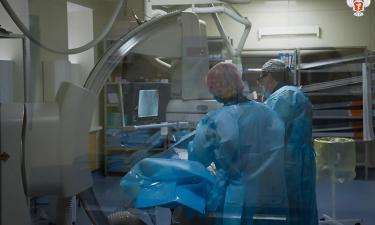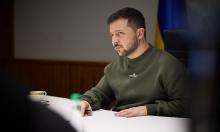Russian Premier to take part in a meeting of prime ministers of CBSS
Russian Prime Minister Mikhail Fradkov will take part in the fifth meeting of the prime ministers of the Council of the Baltic Sea States (CBSS) in Tallinn on Monday.
Mr Fradkov will start with meetings with the heads of government of the Baltic countries, then he will take part in the fifth CBSS meeting, the Russian government's press service told RIA Novosti. Mr Fradkov is expected to appear to the press after the meeting.
The CBSS was established in 1992. It comprises Russia, Germany, Finland, Sweden, Norway, Poland, Iceland, Denmark, Latvia, Lithuania and Estonia. The organisation addresses issues of socio-economic cooperation, infrastructure development, energy, culture, education, nuclear security and nuclear wastes disposal.
According to a government source, the current Council meeting agenda will be dominated by issues related to the development of regional cooperation in the context of the European Union enlargement.
"The conferees are expected to discuss issues pertaining to the intensification of trade and other economic contacts, investment climate improvement, navigation security, environment protection, the development of transport and information communications, the development of civil society," said the government source. The CBSS will also dwell on efforts against organised crime.
The conferees may also touch on the problems of human rights and ethnic minorities' rights in the Baltic countries.
"These issues are not on the meeting agenda. However, this does not mean that the Russian delegation won't raise them. The Russian delegates will certainly voice their position on the matter," said the source.
The Russian delegates also attach great importance to the problem of the life support of Russia's western exclave region of Kaliningrad.
"The European Union is trying to advance its own concept of socio-economic aid to Kaliningrad. Russia also has a relevant programmefor Kaliningrad. Russia therefore wants the EU's position to correspond to its own requirements and the EU to provide aid in the spheres which we believe to be the most crucial," said the government source.
"Our position is that you are welcome with your aid. However, you should agree your aid projects with Moscow," noted the source.
The Russian delegates regard cooperation projects with the European Bank for Reconstruction and Development and the European Investment Bank as the most interesting investment and economic projects, according to the source.
The Council members will also address projects for the construction of the North European gas pipeline, the Baltic Energy Circle, a highway around the Baltic region, railway projects and issues related to the reinvigoration of border crossing in the Kaliningrad region.
Estonian Prime Minister Juhan Parts has said in an interview with Radio 4 that he expects a lot from personal acquaintance with the Russian premier. He also hopes that dialogue between their countries will develop successfully.
When speaking about issues that will dominate the meeting agenda, Mr Parts noted the importance of intensifying the operation of the Estonian-Russian inter-government commission that suspended its activities after the dismissal of the Russian government and the government reform.
The Estonian law enforcement agencies enhanced control on the border from June 11 to June 22.
Tougher control is also due to reports that groups of anti-globalists from Sweden and Denmark are expected to arrive to stage unrest in Tallinn.
The meetings of the CBSS leaders are held twice a year.
Estonia has been holding the rotating chairmanship in the organisation since the CBSS summit in St Petersburg in 2002. On Monday, it is expected to hand over the authority to another member-country.
The CBSS premiers will leave the country in the evening of June 21.
Subscribe to Pravda.Ru Telegram channel, Facebook, RSS!




